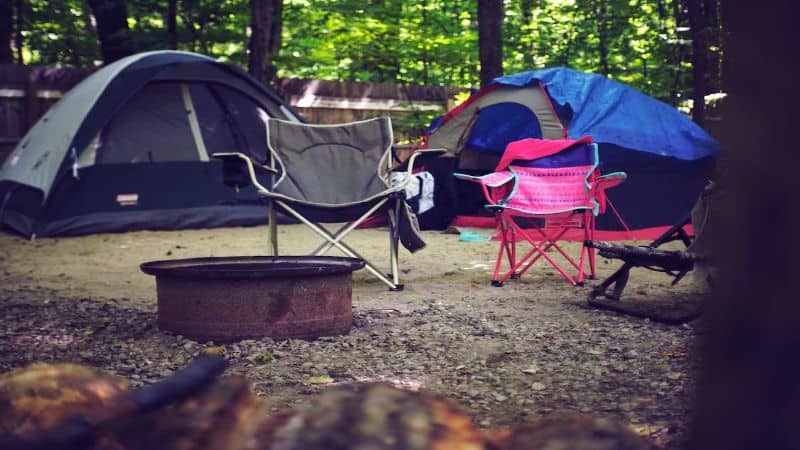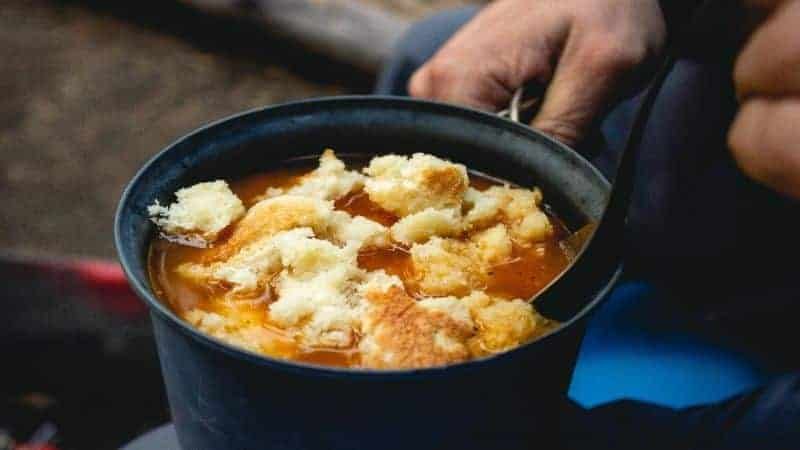Camping is one of my favorite ways to connect with nature, but it also comes with a responsibility to protect the wildlife we encounter. Each time I set up camp, I’m reminded of the delicate balance that exists between our enjoyment of the great outdoors and the well-being of the creatures that call it home.
Understanding Wildlife Protection
Protecting wildlife while camping is essential for maintaining the natural balance of our ecosystems. As an avid camper, I appreciate the beauty of nature and recognize my responsibility in preserving it.
Importance of Protecting Wildlife
Protecting wildlife ensures the stability of our ecosystems. Healthy animal populations contribute to the overall health of the environment, promoting biodiversity. They play specific roles; for instance, pollinators like bees support plant growth, while predators help control species populations. Understanding this delicate balance enhances my camping experience, reminding me that my presence can impact these creatures.
Impact of Camping on Wildlife
Camping can affect wildlife in various ways. Noise from campfires and human interactions can disrupt animal behaviors and habitats. Food waste attracts animals, leading to dangerous encounters for both humans and wildlife. Leaving behind trash can harm animals that ingest it, impacting their health and survival. Being mindful about my camping practices helps minimize my footprint and protects the wildlife I cherish.
Planning Your Camping Trip
Planning a camping trip involves careful consideration to ensure an enjoyable experience while protecting the wildlife around us. I find that laying the groundwork ahead of time makes all the difference in connecting with nature responsibly.
Choosing the Right Location
Choosing the right location affects not just my enjoyment but also the well-being of local wildlife. I always look for campgrounds with established sites to minimize my impact. Options like state parks or designated camping areas provide a balance of access and protection to delicate habitats. Checking regulations on camping zones helps me respect sensitive areas that may be home to endangered species.
Researching Local Wildlife
Researching local wildlife becomes crucial before I head out. Understanding what animals inhabit the area ensures that I prepare appropriately. Resources like wildlife guides, local ranger stations, or online databases give me insight into the species I might encounter. Knowing their behaviors helps me avoid disturbances, from maintaining safe distances while observing to storing food properly. Familiarizing myself with the ecological role of various animals fosters a deeper appreciation for the environment I’ll be exploring.
Best Practices for Camping
Camping offers a great chance to immerse myself in nature while being mindful of wildlife. I focus on simple but effective practices to ensure my presence has as little impact as possible on the environment.
Keeping a Clean Campsite
Keeping a clean campsite is essential for protecting wildlife. I always pick up all trash, including food scraps. Wildlife, drawn by odors, can become habituated to human food, leading to dangerous encounters. I store all items in bear-proof containers or hang food at least 10 feet off the ground, away from tree trunks. Additionally, I clean cooking areas after meals and utilize designated waste disposal methods when available.
Safe Food Storage Techniques
Safe food storage techniques are crucial for minimizing wildlife interactions. I keep food sealed in airtight containers. I never leave food unattended, even for a moment, and always pack away leftovers promptly. At night, I store all food and toiletries away from my tent. This practice reduces the risks of attracting curious animals, protecting both them and me.
Minimizing Noise and Disturbance
Minimizing noise and disturbance greatly aids in preserving the tranquility of nature. I respect the sounds of the wilderness by keeping voices low and avoiding loud music. This consideration helps to maintain a peaceful environment for all creatures. I also limit sudden movements or disturbances that might startle wildlife. By observing from a distance, I can appreciate the beauty of nature without intruding on the lives of its inhabitants.
Interacting with Wildlife
Engaging with wildlife enhances my camping experience, but it’s crucial to prioritize their safety and wellbeing during these interactions. I approach wildlife encounters with respect, aiming to observe and appreciate rather than disturb.
Observing Wildlife from a Distance
I’ve learned the value of maintaining a safe distance when observing wildlife. Using binoculars or a camera with zoom features allows me to capture incredible moments without intruding on their space. I often find the perfect spot with a clear view, quietly waiting for animals to act naturally. Keeping my voice low and movements subtle minimizes stress for the creatures I’m watching. I avoid getting too close, as sudden movements can trigger defensive behaviors. Remembering that it’s my responsibility to respect their habitat fosters a deeper connection with nature.
What to Do if You Encounter Wildlife
Whenever I come across wildlife unexpectedly, I stay calm and assess the situation. I back away slowly without turning my back, keeping my eyes on the animal. If I encounter larger animals, like bears or moose, I firmly speak to them in a calm tone to signal my presence. I maintain a respectful distance and avoid any actions that might provoke them, like waving my arms or making loud noises. If the wildlife seems aggressive or overly curious, I ensure my path is clear to retreat. Understanding animal behavior helps me navigate these moments safely, allowing me to appreciate the beauty of wildlife while keeping both myself and the animals unharmed.
Educating Others
I believe that educating fellow campers about wildlife protection can enhance everyone’s outdoor experience. When we share knowledge, we create a community that respects our natural surroundings and the creatures that inhabit them.
Importance of Spreading Awareness
Spreading awareness about wildlife protection matters because it fosters a sense of responsibility toward our environment. When campers understand the impact of their actions, they’re more likely to adopt practices that safeguard wildlife. Increased awareness contributes to the preservation of ecosystems, ensuring that future generations can enjoy the beauty of nature as I do.
Ways to Share Knowledge with Campers
- Organize Group Workshops: Hosting workshops at your campsite can be a fun way to teach others. I often share tips on minimizing wildlife encounters, which promotes safety and harmony in nature.
- Distribute Informational Flyers: I’ve created simple flyers outlining best practices for wildlife protection. Distributing these at trailheads or campgrounds informs fellow campers about the importance of clean camps and safe food storage.
- Engage on Social Media: Sharing experiences and tips on platforms like Instagram or Facebook helps reach a broader audience. I often post about my camping trips, highlighting both the beauty and responsibility of interacting with wildlife.
- Lead by Example: I find that a hands-on approach works wonders. When other campers see me properly disposing of waste or using bear-proof containers, they’re more inclined to follow suit.
- Encourage Local Conservation Programs: I often support and participate in local wildlife conservation programs and encourage others to join. Not only does this foster community, but it also provides valuable insights into protecting wildlife.
By sharing knowledge and promoting awareness, we can collectively create a positive impact on our natural environments while enjoying the outdoor adventures we love.
Conclusion
Camping is such a wonderful way to connect with nature and recharge. It’s equally important to remember that our actions can impact the wildlife we love. By being mindful of our camping practices we can enjoy the great outdoors while ensuring that the animals and their habitats remain safe.
I truly believe that with a little effort we can make a big difference. Let’s respect the wildlife we encounter and share our knowledge with others. Together we can create a community that values and protects the beauty of the natural world. Happy camping and let’s keep our wildlife thriving!











